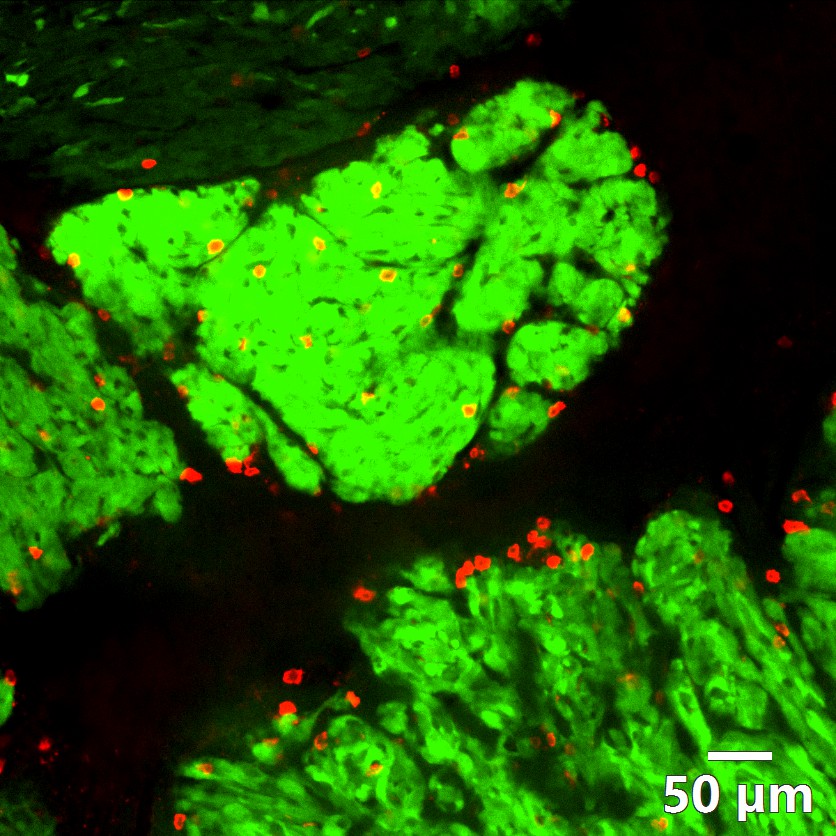|
The Laboratory of Immunology and Imaging 免疫动态成像实验室 News Home Team Research Publications Contact Our current research interests are as following: 1. Tissue resident immune responses in protection against infections Kupffer cells is the largest tissue resident macrophage population in our entire body with an incredible ability to catch pathogens from the blood. Our previous work has proposed an unappreciated pattern recognition function of CRIg in Kupffer cell-mediated binding and capturing Gram-positive bacteria (Zeng Z. et al., Cell Host&Microbe, 2016). We also uncovered an estrogen-elicited natural antibody that was able to confer a fast capture of EPEC by Kupffer cells in females, partially explaining the sex-biased difference during bacterial infections and sepsis (Zeng Z. et al., Nat Immunol, 2018). By combining CRISPR mediated in vivo genome editing and intravital imaging, we are interested in identifying functional receptors expressed by tissue resident macrophages in promoting bacterial phagocytosis and in regulating T cell responses against pathogens during systemic and local infections.
2. Immune Surveillance and Evading Mechanisms in Liver Metastasis When cancer cells leaves their hometown to colonize a distant organ through the bloodstream, the liver is one of their most common destination. Abundant innate immune cells reside inside the liver vasculature, including Kupffer cells, NK and NKT cells, how these cells orchestrate to perform an immune surveillance program in situ against invading cancer cells remains largely unknown but can be targeted for preventing liver metastasis in pre-metastatic cancer patients. By using the cutting-edge intravital imaging, we are currently studying the cellular interactions of these immune cells with metastatic cancer cells to dissect their immune surveillance functions in vivo and in real time. On the other hand, because patients with established liver metastasis are often resistant to T cell based cancer immunotherapy, as well as our findings that the liver favors induction of T cell tolerance rather than immunity (Zeng Z. et al., J Exp Med, 2016; Zeng Z et al., J Immunol 2013). we will investigate the immune evading mechanisms during liver metastasis with a particular focus on T cell tolerance.
3. Optimizing Adoptive Immunotherapy for Solid Tumors Adoptive immunotherapy such as CAR-T, TIL and NK cell therapy are promising in treating hematological malignancy but are less efficient against solid tumors. A major obstacle is the limited infiltration of adoptively transferred immune cells into the tumor bed. We aim to study the molecular mechanisms underlying the immune exclusion or immune desert phenotype of tumors by in vivo visualization of the T cell trafficking upon transfer. Our ultimate goal is to optimize the current adoptive immunotherapy regimen by improving the infiltration of T cells into “cold” tumors.
|









